13 Serbian films you need to know about
Pitali smo reditelja Stefana Đorđevića za preporuke domaćih filmova posle 2000. godine.
Bojana JovanovićSeptember 22, 2025
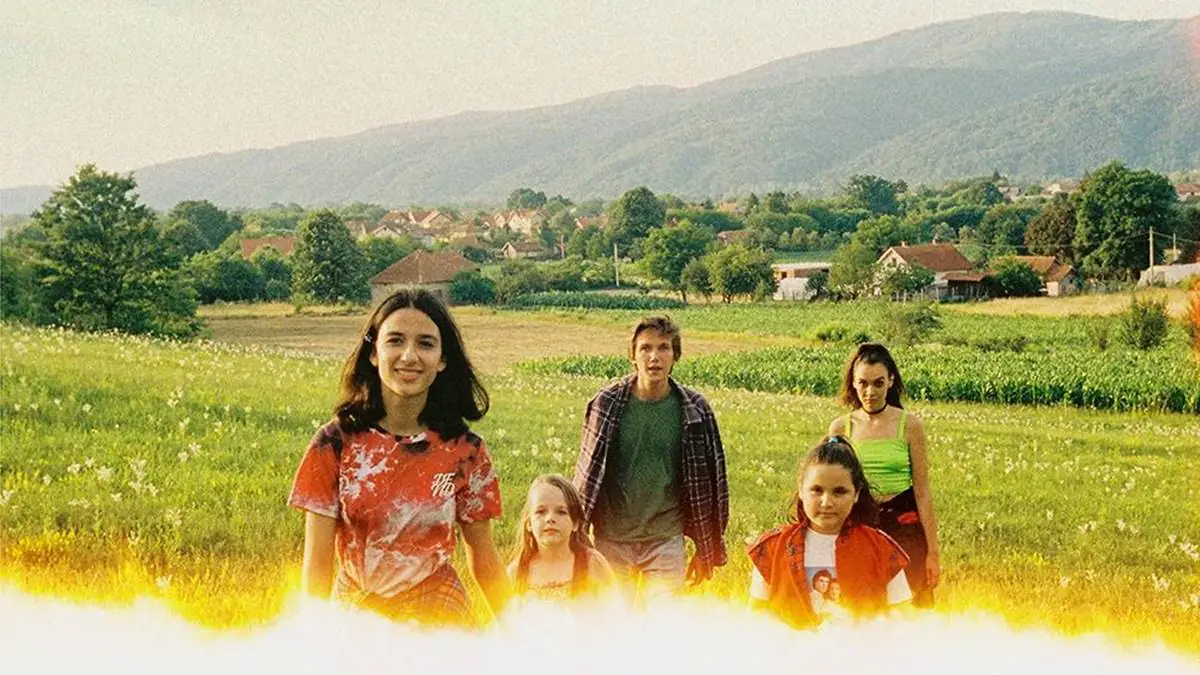
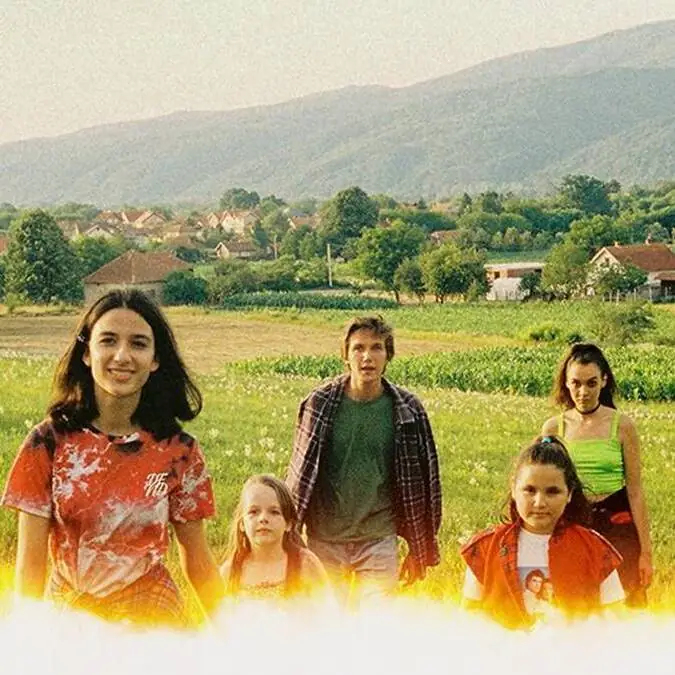
Pitali smo reditelja Stefana Đorđevića za preporuke domaćih filmova posle 2000. godine.
Bojana JovanovićSeptember 22, 2025
One of my earliest memories is my grandfather’s loud laughter as the paranoid and humorous shouts of Ilija Čvorović echoed from the television. I think we watched Balkan Spy over a hundred times; it was his favorite film. My grandmother, on the other hand, preferred what she called “women’s films,” so lunch often came with conversations about the famous Love and Fashion. My dad was even nicknamed Čkalja in high school—he never explained why. Late at night, when my grandfather thought everyone was asleep, I would hear the sounds of gunfire, tanks, and battle cries coming from his room. It was the film Pretty Village, Pretty Flame. When I later asked him what he was watching, I was surprised that something with the word “pretty” in its title could be so violent. My older cousin was the one who, as soon as YouTube appeared, convinced me to search for Leptirica—and I can freely say that it was one of my first traumas. My entire childhood was shaped by film and television, and to this day I closely follow Serbian cinema.
Today, however, there is a whole generation of filmmakers whose work has not received enough attention in theatrical distribution, even though it offers a fresh perspective on contemporary life, new visual styles, and subtle, intimate stories. To highlight exactly those titles, we asked Stefan Đorđević, this year’s winner of the Best Feature Film award at the Sarajevo Film Festival, to share his recommendations. You won’t find suggestions here that are easily searchable online or famous lines that have long entered everyday slang and pop culture—there’s no We’re Not Angels, The Marathon Family, or When Father Was Away on Business. Instead, before you are films made after the year 2000, valuable Serbian works that have remained outside the mainstream of public attention, yet deserve to be seen and remembered.
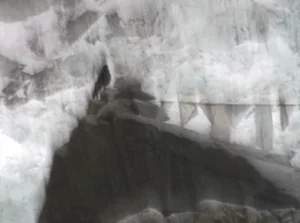
4 Years in 10 Minutes, imdb
4 Years in 10 Minutes is a documentary film composed of personal footage and diary entries by Dragan Jovanović, transforming his ascent of Mount Everest into a meditation on time and existence. In the quiet presence of nature, the goal itself—the conquest of the summit—loses its importance, because what remains is not a victory over the mountain, but the experience of the journey and the confrontation with oneself. Dragan writes: “At the border between life and death, the importance of our chronological moment disappears. Here, time is condensed into a single point and simply ceases to exist.” The film reminds us that all our summits are merely occasions to discover our own inner strength and transience. And perhaps the meaning of it all is contained in one simple thought:
„I want to endure. And that’s all.“
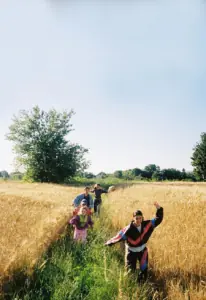
78 days, imdb
The NATO bombing of Yugoslavia in 1999 lasted for 78 days, and while it was a tragic experience for many, for children it became a strange kind of escape into games, improvisation, and new realms of imagination. 78 Days focuses on a single family, told through Hi8 footage filmed by three sisters who recorded their everyday life. What emerges is not just a document of a specific time, but an evocation of memories that remind us that, despite the destruction, we were once closer to one another.
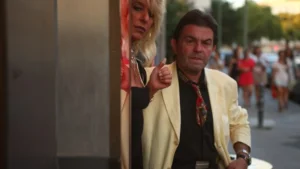
Dragan Wende – West Berlin, Mubi
This film explores the past of Yugoslavs who moved to the West in search of a better life, but above all, it tells the story of a family that, through an intimate portrayal of its youngest member, Vuk Maksimović (one of the film’s authors), becomes a mirror of an entire generation. As its title suggests, West Berlin offers two layers of meaning: beyond the historical context, it serves as a symbol of the space between a divided world and personal identity. The authenticity and humor of the characters evoke memories of our own relatives and friends from Germany who brought with them the scents, flavors, and sounds of the West into our homes. That experience shaped not just one, but many Yugoslav generations.
„And when the Wall fell, everything fell!“
Ivana the Terrible is an autobiographical film by Ivana Mladenović, featuring her entire family alongside her. The story follows her return from Budapest to her hometown of Kladovo for medical checkups, family pressures, and a relationship with a younger man. When she becomes the face of a local festival, her musician friends from Romania enter the story, setting off a series of tragicomic situations. The strength of this film lies not so much in its plot as in its rawness and honesty. The Mladenović family, both rough and tender at once, bring warmth and humor to the screen. Their shared dedication created not only a film but also a precious family document.
„The air isn’t meant for breathing. The air must be sung.“
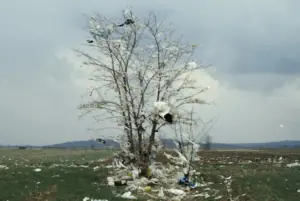
Depth Two, imdb
Depth Two explores the deep traces of tragedy and the crimes revealed by the mass graves discovered in Batajnica, relying on the voices of witnesses from The Hague trials and images of the spaces where those crimes took place. The film intertwines the silence of landscapes with recorded testimonies, creating a rhythm that leads viewers through an experience that is difficult to comprehend. The imagination it evokes is not gentle but heavy, rusted, like moss that doesn’t offer safety but forces us to confront painful reality. This work leaves no one indifferent. It reminds us that collective reckoning with the past is not only an act of remembrance but a moral duty; ignoring tragedies opens the door for their repetition. Depth Two is a film that, through silence and testimony, reminds us that truth must be named in order to be survived and understood.
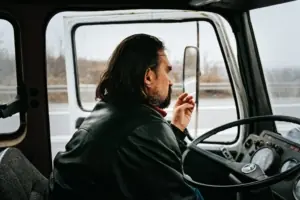
The Load, imdb
The Load and Depth Two deal with the same subject, yet in completely different ways. While Depth Two is a documentary based on testimonies, The Load tells a fictional story that conveys tragedy through atmosphere and silence. We follow a truck driver transporting cargo from Kosovo to Belgrade, unaware of what he is carrying, yet fully conscious of the moral swamp he has entered. Through subtle visual language and the silence between fragmented dialogues, the weight on his shoulders becomes palpable. That weight does not disappear overnight, even when buried deep underground. It enters the home, and it will be inherited by future generations—unless we choose to confront it.
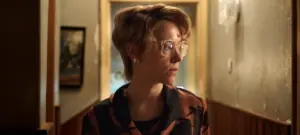
Celts, imdb
The story of Celts unfolds in Belgrade in 1993, during the birthday party of a nine-year-old girl at a time of inflation, sanctions, and general social instability. Within the intimate setting of an apartment where family, friends, and children gather, a microcosm emerges that reflects the broader picture of society. This small world feels like a memory album from every home of that era. While the children are absorbed in gifts and play, the adults engage in serious conversations, revealing their frustrations, longings, and fears—yet all through a sense of closeness and warmth that keeps the film from ever feeling heavy. We recognize the lightness of being within an uncertain world that seems on the verge of collapse, because we all know that when there’s no butter, margarine will do; when there’s no Coca-Cola, a powdered Step drink will suffice; and if you don’t have a dog for the kids to play with, you borrow the neighbor’s shaggy three-legged one. Within a community there are always solutions, and as long as we remain together, even in the smallest moments of intimacy, we will find shelter.
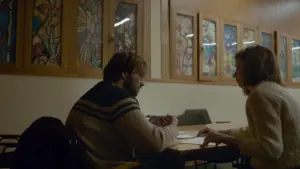
My Morning Laughter, imdb
I’ve always considered Marko’s student film On the Other Side one of those rare short gems, and I had been eagerly awaiting his first feature. My Morning Laughter tells the story of Dejan, who still lives with his parents in Kragujevac. Though nearing his thirties, he remains a virgin and emotionally dependent. His parents only make his coming-of-age process more difficult. The film’s form, blending elements of cinéma vérité and dark comedy, creates a sense of immediacy, while its visual and sound minimalism deepens the intimacy. The rawness of this work stands as the author’s signature mark within his cinematic universe. I don’t think there’s anything more beautiful in art than when your work doesn’t resemble anything we’ve seen before.
„Maybe there are so many things we aren’t even aware of.“
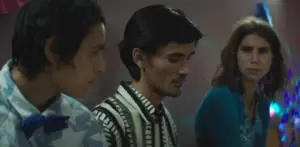
Oasis, imdb
Oasis raises the question of life for young people living in an institution for children with special needs. What makes the film particularly powerful is that the actors are not professionals but actual residents of the Sremčica home. When real people enter a film, the process inevitably becomes complex—somewhere between a carefully structured script and the unrepeatable truth carried by the participants themselves. This creates a tension between fiction and life, but also a profound sense of responsibility toward the space and experience being portrayed. While watching the film, I initially compared it rationally to my own experience working in a correctional facility for minors. Yet what struck me most was not analysis, but the resonance that came days later. That’s when I clearly felt that the film is, in fact, about hope contained within love—even when that love is tragic or misunderstood. Marijana, Tijana, and Valentino shared that truth with us, and its echo remains.
Mining Opera is a documentary film made in my hometown, Bor, in 2006—the same year I left for Belgrade to study. At that time, Bor was going through difficult years: the RTB Bor copper factory was in debt, and most of the town’s residents depended on it. The hardships of everyday life didn’t interest the youth, not even me or my friends, and we remember that period with a sense of nostalgia. Because of that, it took me years to watch Mining Opera, since within that heaviness I couldn’t recognize my city. Later, when Chinese investors took over the factory, Bor changed significantly, and my connection to it weakened. Only then did I feel ready to face the film—and I recognized myself in every detail, in every street that pulled me deep into memory. At the end of the film, Lovke and Miki perform a song at the train station, the very place where my parents often waited for us to step off the train. And as the song says:
„I will always carry you forever in my memory.“
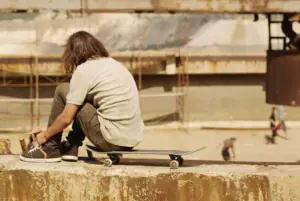
Tilva Roš, imdb
As one of the film’s protagonists, it took me more than fifteen years to look at it objectively. During that time, I heard many different impressions, but I also met people who had never even heard of Tilva Roš. The film’s title, in the Vlach language, means Red Hill and refers to a hill near Bor that, due to copper mining, became the largest pit in Europe. The story follows a group of skaters during their last summer after high school, as they shoot an amateur film in which they deliberately hurt themselves. From today’s perspective, I can say it is a story about friendship and growing up, directed from the viewpoint of the protagonists themselves, so even its fictional elements belong to an authentic world. Director Nikola Ležaić not only shaped our lives dramaturgically but also penetrated their core, visually capturing emotion, rawness, and vulnerability.
„I skate because I love to skate. Nobody gets that.“
The environment we grow up in shapes who we become. In Taurunum Boy, that environment is Zemun, where a group of boys is finishing eighth grade, spending their time in abandoned lots and playgrounds. Ahead of them lies the last summer they will spend together, still untouched by serious life decisions. This observational documentary about one generation gradually transcends the boundaries of objectivity, delving into the most intimate moments of the Taurunum boys’ lives. On their faces, we see that they are not as immature or reckless as the world around them assumes. Perhaps, at the end of the day, not every environment is made to show us in our best light.
„How did I deserve some of the things that happened, when that’s totally not true?“
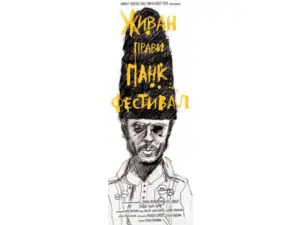
Živan Makes a Punk Festival, imdb
Anyone who has ever tried to organize something will recognize themselves in Živan, a young man from Tomaševac who has been persistently running a punk festival in his village for six years. Even though only a handful of people show up, his determination remains unshaken. The obstacles he faces—and the ways he overcomes them—reflect the Balkan mindset: everything is possible, yet nothing ever happens. Or, as Živan himself would say when asked how many people he expects at the festival:
„I’m expecting nice weather.“